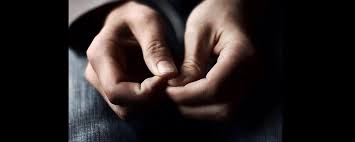Working with Persons Accused of Causing Harm
The CSSA have produced very clear guidelines about how to best support Religious who have been accused of causing harm in their document entitled ‘Responsibilities of Dioceses and Religious Orders towards Clergy and Religious against whom Allegations have been made‘. Key points from this documents include:
1. To facilitate an investigation by the Statutory Authorities at an early stage through prompt referral of the facts and maintain contact with the statutory authorities throughout.
2. To maintain confidentiality of written records and of information in respect of an allegation within normal inter-agency professional boundaries of information-sharing. In some cases, information will need to be shared more widely for the protection of children and adults at risk.
3. To consider a temporary removal from active ministry with the benefit of advice from the Statutory Authorities. Such an action is a neutral act and does not imply guilt. Information provided to an accused person about an allegation may be restricted at this point if a police investigation is pending.
4. Where it is necessary for a member of the Clergy or Religious Congregation to vacate his/her normal place of residence, to find alternative accommodation, subject to the approval of the Bishop or Religious Congregation Leader. Where the accused person will be living with others, key persons will need to be informed of the allegation.
5. To communicate decisions affecting the accused person both verbally and in writing.
6. To provide financial provision, where this would normally be the responsibility of the Diocese or Religious Congregation, and help accessing legal aid. Charitable funds should not normally be utilised to pay legal fees in connection with criminal investigations or prosecutions.
7. To provide pastoral support during the process of an investigation and subsequent evaluation of risk and to continue to provide it for as long afterwards as it is required.
8. To recognise that unfounded false, or malicious allegations are sometimes made and that these can have a destructive effect on the person accused.
9. To support the accused person to accessing help to seek legal redress against an individual who has made a false or malicious allegation.
10. To take such action as the Bishop/Religious Leader may deem appropriate to help to restore a person’s reputation within the diocese/order as far as possible following an unfounded false or malicious allegation and to provide the person with continuing pastoral support.
Creating a Care and Safety Management Assessment will play a key part in helping you work with persons accused of causing harm. The RLSS will take responsibility for working with you and the person accused of causing harm to put together a plan that aims to keep people safe whilst also advises the person accused of causing harm to ensure they are clear about what is happening but also supported in the most appropriate way in the immediate future and beyond.

